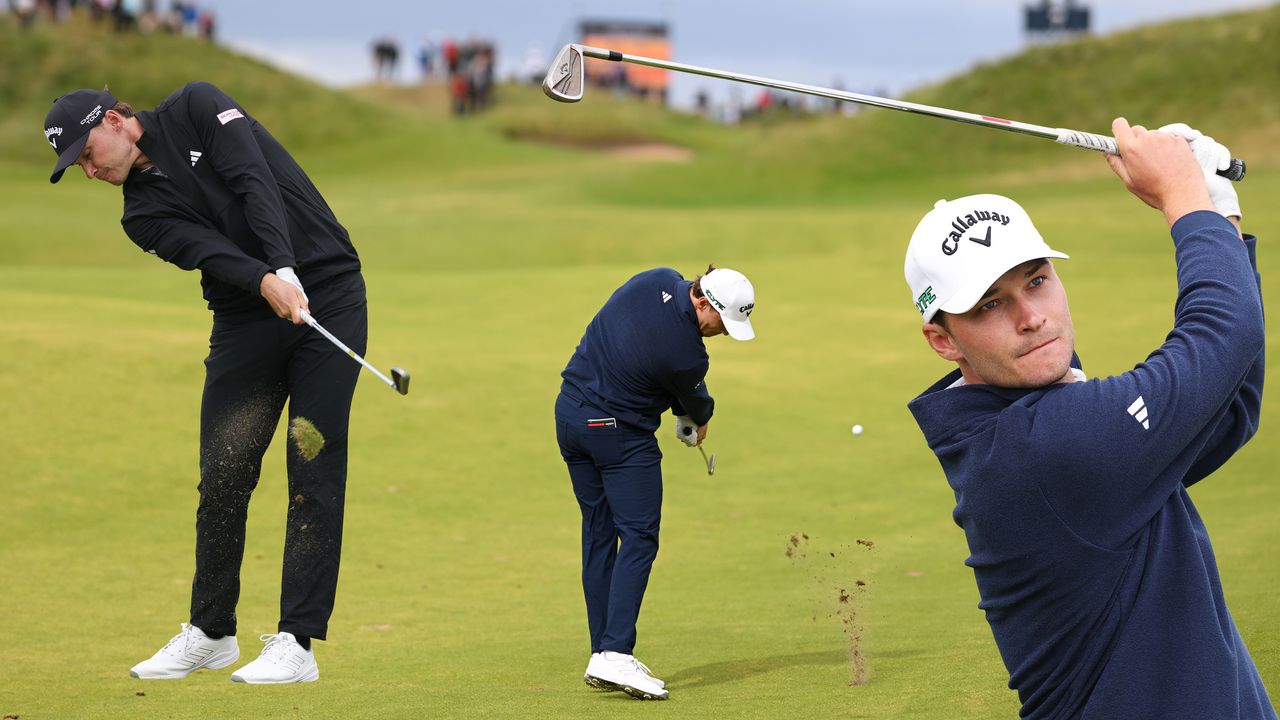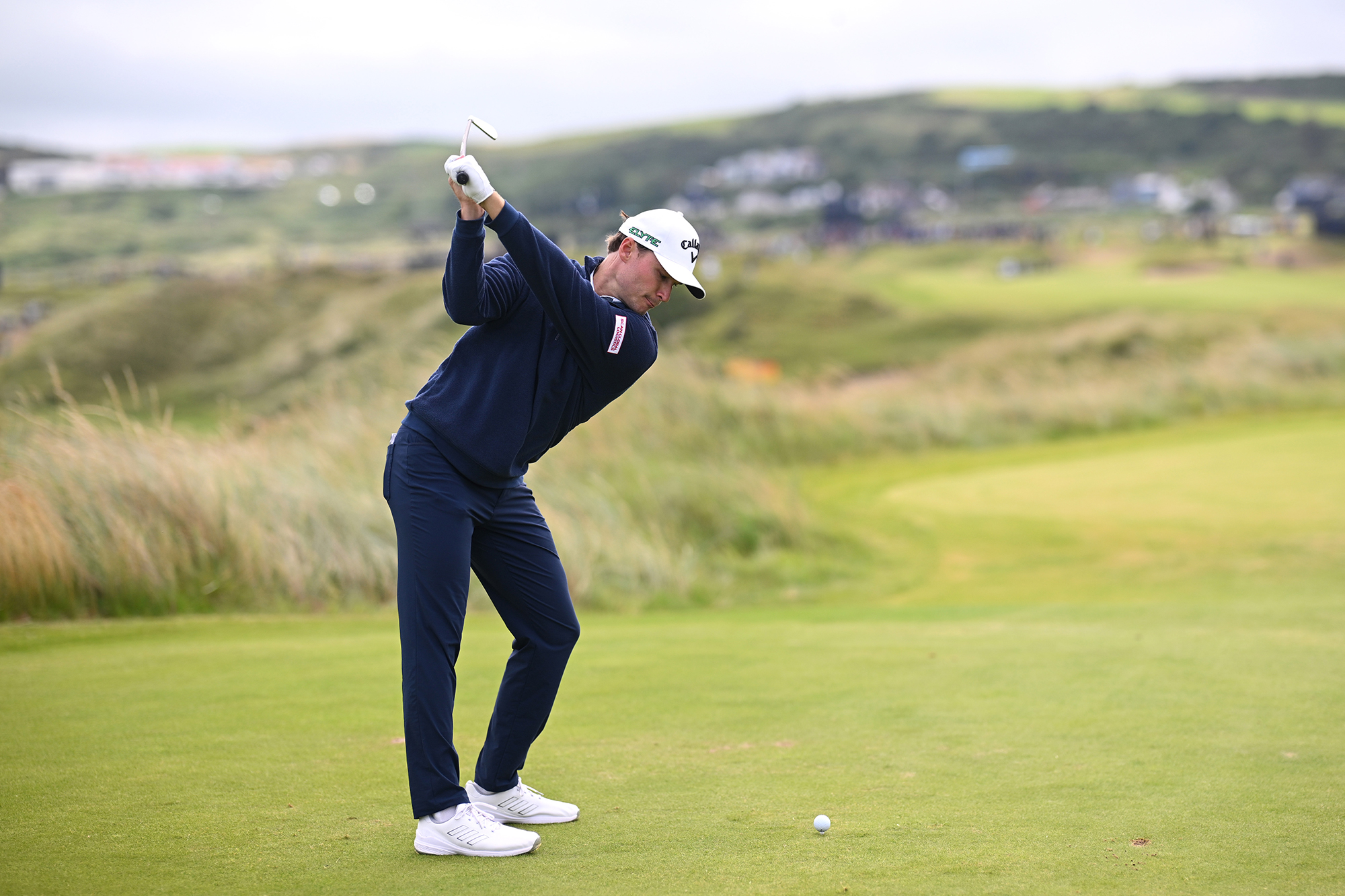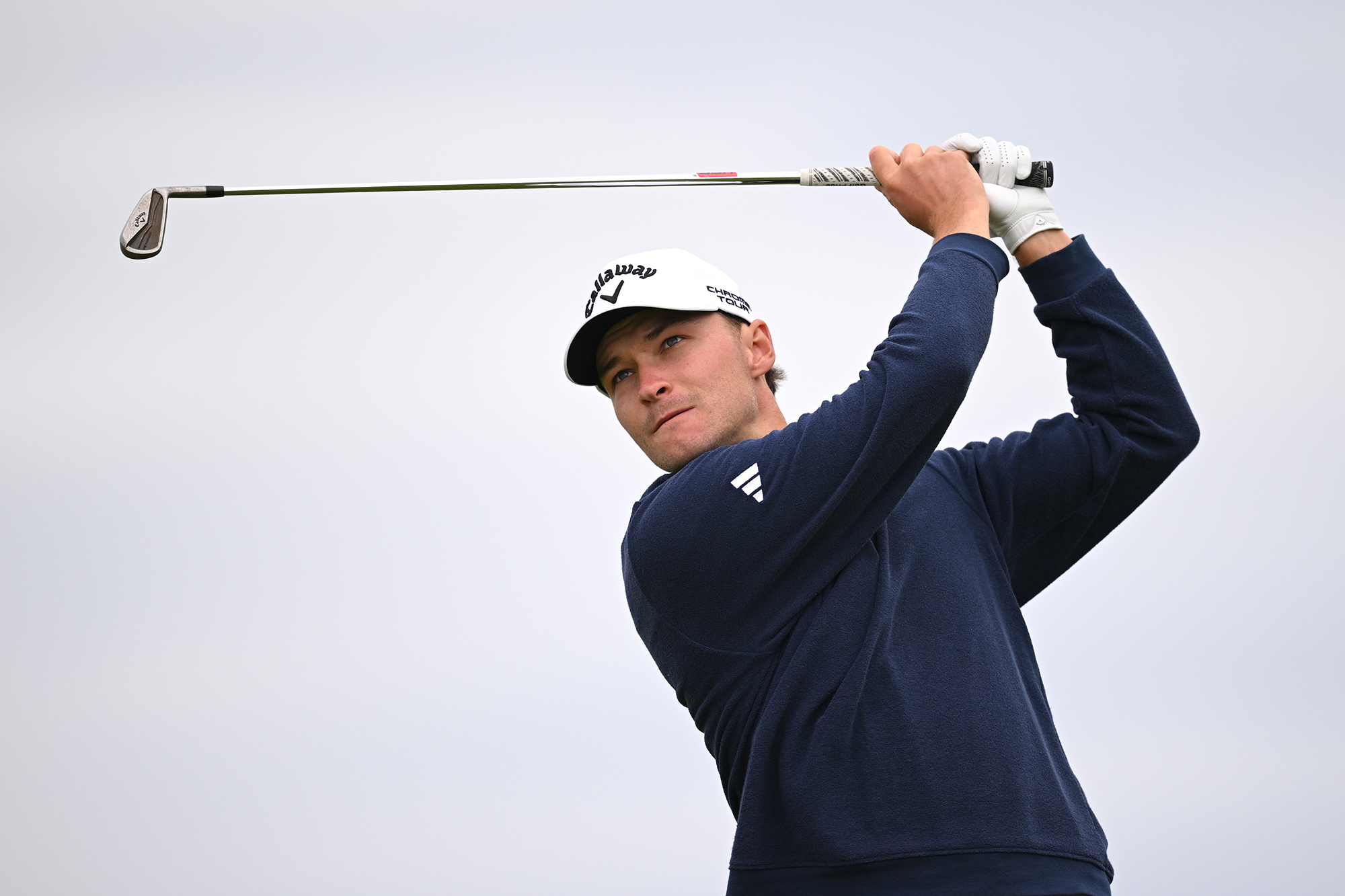
Rasmus Hojgaard backed up a solid opening round at the 153rd Open Championship with an equally impressive 68 on Friday, to head into the weekend in contention at Royal Portrush.
If you want to improve your iron shots, or you are a beginner who wants to learn how to hit an iron shot, you won't find a much better teacher than the five-time DP World Tour Winner.
He gained more than two strokes on the field with his approach play in the second round of the Open, so we decided to share Rasmus Hojgaard's six expert tips to flush your iron shots...
Flush Your Iron Shots With 6 Tips From Rasmus Hojgaard
1. Set-up To Compress The Golf Ball
You want to have a very natural set-up where you feel like you can move and stay balanced and controlled.
The ball position should be pretty central for mid-irons, because you want the low point of the swing just after the ball in order to compress the golf ball at impact.
You can move the ball a little further back for wedges to create a steeper attack angle, and a little further forward with long-irons and hybrids to create a slightly shallower attack angle.
Setting your hands slightly ahead of the ball so there’s a little forward shaft lean will also help you compress the ball.
2. Swing With A Smooth Tempo
The best ball-strikers have a very nice tempo. They’re not trying to hit it too hard and they keep it very simple. It’s hard to say what the right tempo is because it can be different for different people.
I have to feel like I’m finishing the backswing and giving myself time for the club to naturally fall down. Then, I turn on the ball.
A nice way to find good tempo is to hit three-quarter shots focusing on staying connected and engaging your core. Let the body control the shot. You’ll be a much better iron player in the long run if you focus on that.

3. Keep Your Arms And Body Connected
It’s important to stay connected so your arms and body move and work as one. As soon as it separates, that’s when the bad timing comes.
A great golf swing connection drill is to put a head cover under your left armpit and make sure it stays there as you swing.
That will also make the backswing shorter and help engage your core, which will make you a lot more consistent.
You should have a shorter backswing with irons than driver because you don’t need the time to create speed – you want to be more consistent and efficient.
4. Stabilise The Clubface
You have to make sure you rotate through the ball so your upper body finishes facing the target. As soon as you stop rotating and the body slows down, it causes bad strikes and direction.
When you stay connected and your body keeps turning it stabilises the clubface, so you want to use the body as much as possible to have maximum clubface control and consistency at impact.

5. Tweak The Ball Position
If you want to hit a draw, put the ball a little back. If you want to hit a fade, move the ball up a little bit.
That changes the club path a touch into impact without you having to change your swing, but remember to tweak your aim and start line to allow for the shot shape.
I like to have the ball a little more forward to neutralise my path because I’ve always been a bit too much from the inside, so don’t be afraid to slightly move the ball to suit your swing and shots.
When I hit a draw, I’m maybe swinging at 90 per cent because I want to make sure I’m getting the clubface to release and a little more speed helps with that. For a fade, it’s a bit less because I’m taking distance off.
6. Weight Forward At Impact
In terms of weight distribution, you want to have most of your weight in your left foot at impact as your body continues to rotate towards the target. This creates speed and promotes the correct club path through impact.
Focusing on reaching a good, full finish is a simple way to keep your weight moving forward during the swing. I might have a shorter finish position if I want to flight the ball a bit lower, but you always have to keep turning and get your weight forward to create speed and launch it on target.







